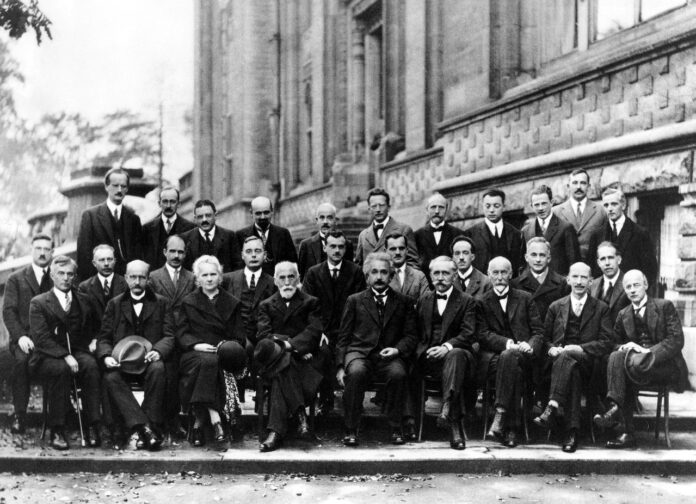Exploring the Mysteries of the Quantum World
In the realm of modern physics, few concepts have captivated the imagination of scientists and laypeople alike as much as quantum mechanics. With its mind-bending principles and remarkable implications, quantum mechanics has reshaped our understanding of the fundamental nature of reality. From the peculiar behavior of subatomic particles to the potential for quantum computing, this branch of physics stands as a cornerstone of scientific progress. In this article, we embark on a journey into the world of quantum mechanics, unraveling its basic principles and shedding light on its significance in shaping our understanding of the universe.
The Quantum Revolution Begins
The foundations of quantum mechanics were laid in the early 20th century when scientists sought to comprehend the perplexing behavior of atoms and their constituent particles. The classical physics of the time, which had successfully described the behavior of macroscopic objects, failed to explain phenomena observed at the atomic and subatomic scales. The stage was set for a scientific revolution that would challenge our deepest intuitions about the nature of reality.
Wave-Particle Duality: The Dual Nature of Matter
One of the key breakthroughs that ushered in the era of quantum mechanics was the concept of wave-particle duality. Classical physics had viewed particles such as electrons and photons as discrete entities, behaving solely as particles. However, experiments conducted by pioneers like Thomas Young and Max Planck revealed that these particles could exhibit wave-like behavior under certain circumstances.
The famous double-slit experiment, which demonstrated that particles could interfere with themselves like waves, stands as a defining moment in quantum mechanics. It showcased the bizarre duality inherent in the quantum world, where particles possess both wave and particle-like characteristics. This wave-particle duality forms the basis of quantum mechanics and laid the groundwork for further exploration.
Uncertainty Principle: Embracing the Limits of Knowledge
Another fundamental pillar of quantum mechanics is the Heisenberg uncertainty principle, formulated by German physicist Werner Heisenberg in 1927. The principle states that certain pairs of physical properties, such as position and momentum, cannot be known simultaneously with arbitrary precision. The more accurately one tries to measure one of these properties, the less accurately the other can be known.
The uncertainty principle challenges our classical notion of determinism, where it is assumed that if we have complete knowledge of a system’s initial conditions, we can predict its future state with certainty. Quantum mechanics introduces inherent randomness and places fundamental limits on our ability to measure and predict the behavior of quantum systems. This concept has far-reaching implications, from the probabilistic nature of quantum events to the development of quantum cryptography.
Quantum Superposition: The Power of Coexistence
One of the most fascinating aspects of quantum mechanics is the concept of superposition. According to this principle, a quantum system can exist in multiple states simultaneously, thanks to the wave-like nature of particles. For example, an electron can be in a superposition of spin-up and spin-down states, meaning it has a certain probability of being measured in either state.
Superposition lies at the heart of quantum computing, offering the potential for exponential computational power compared to classical computers. By exploiting the ability of quantum bits, or qubits, to exist in multiple states simultaneously, quantum computers could revolutionize fields such as cryptography, optimization, and simulation.
Entanglement: Spooky Action at a Distance
Perhaps the most mind-boggling feature of quantum mechanics is entanglement. When two or more particles become entangled, their states become interconnected, regardless of the distance between them. A change in the state of one particle instantaneously affects the state of the other, no matter how far apart they are, defying our classical notions of locality and causality.
Einstein famously referred to this phenomenon as “spooky action at a distance.” Entanglement has been experimentally confirmed and has significant implications for quantum communication and quantum teleportation. It also raises profound questions about the nature of reality and the interconnectedness of the quantum world.
The Future of Quantum Mechanics
Quantum mechanics continues to be a vibrant and active field of research, with scientists striving to uncover its mysteries and harness its potential. The development of quantum technologies, such as quantum computing and quantum cryptography, holds immense promise for solving complex problems and revolutionizing various fields.
Researchers are also exploring the application of quantum mechanics in areas such as quantum sensing, quantum communication networks, and quantum simulations. Additionally, ongoing efforts seek to reconcile quantum mechanics with general relativity, the theory of gravity, in order to formulate a unified theory of physics that can describe both the microscopic and macroscopic realms.
Conclusion
Quantum mechanics stands as the foundation of modern physics, challenging our intuitive understanding of the world and revealing the remarkable nature of the quantum realm. From wave-particle duality to the uncertainty principle, superposition, and entanglement, the principles of quantum mechanics have opened up new frontiers in scientific exploration. As we continue to delve deeper into the mysteries of quantum mechanics, its implications for technology, communication, and our understanding of the universe are bound to shape the course of scientific progress for years to come.




